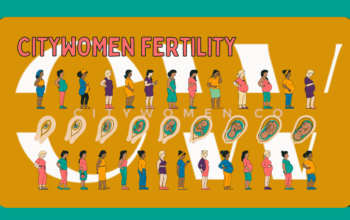
February 27, 2020 at 01:00PM by CWC
Even when I have super-satisfying sex with a partner I trust, I often feel a sense of sadness afterward—but I’m never sure why it is that I feel that way. It turns out, though, I’m not alone in this experience, as licensed psychologist Heather Z. Lyons, PhD, points out that research has found that nearly half of women experience postcoital dysphoria (PCD), or sadness following otherwise satisfactory intercourse, at some point in their life. And for 5 to 10 percent of women, that rate of incidence jumps to having occurred within the past month.
“Individuals who experience PCD may express their immediate feelings after sexual intercourse in terms of melancholy, tearfulness, anxiety, irritability, or psychomotor agitation,” according to research published in International Journal of Sexual Health.
“Individuals who experience PCD may express immediate feelings after sex in terms of melancholy, tearfulness, anxiety, irritability, or psychomotor agitation.” —International Journal of Sexual Health
Finally feel seen but still not sure why it’s happening or what you can do about it? Below learn four reasons why you might experience postcoital dysphoria, along with expert-informed methods for overcoming it. And, of course, seeking the guidance of a licensed sexologist or sex therapist can help you navigate a personalized course of action that’s tailored to your specific needs.
1. Your need for post-sex care isn’t being met
ADVERTISEMENT
ADVERTISEMENTKate Spade Autumn/Winter Sale |
Post-sex pillow talk is a ritual sex experts and educators want you to adopt for every sexual relationship you have—even the casual ones. Without this time to connect emotionally, a sense of vulnerability can give way to feelings of postcoital dysphoria. “With a steady partner, we get cuddles, perhaps breakfast in the morning, check-ins, and the soothing understanding that we are safe and cared for,” says relationship and sex coach Valarie Merced. “When we hook up with someone with whom we lack a sense of intimacy and [have no process of] after care, there’s a higher possibility of being left vulnerable.”
2. If you’re having casual sex, you might be working against your intimate needs
This potential cause of postcoital dysphoria might come into play if your sex life isn’t reflecting what you actually want and need from an intimate relationship. Let’s say you’re having casual sex. “Research shows that both men and women are not negatively affected if casual sex is in line with their needs and values,” says clinical psychologist Carla Marie Manly, PhD. “However, casual sex can negatively affect psychological well-being for those whose values and desires don’t support [it].”
So if you’ve ever gone into romp feeling good and even excited about it, but deep down know the choice doesn’t align with your ideal relationship structure, you may be more likely to experience feelings of postcoital dysphoria. Licensed psychotherapist and relationship coach David Strah, LMFT says this can reflect a longing for a deeper connection that’s physical, emotional, and continued on a regular basis.
3. Your expectations aren’t being unfulfilled
Let’s say the sexual experience was casual or a one-time thing that felt exciting. “The intense high might lead to feelings of being let down, sadness, or loneliness once we realize the experience is not going to be repeated,” says Strah.
Or more simply, the reality of the situation might not have lived up to what you had hoped for. “Anytime personal standards are compromised, individuals may feel worried, upset, and/or disappointed in themselves or their choices,” says psychotherapist Aviva Kamander, LCSW.
4. You have underlying trauma or shame
The experience of sexual desire and subsequent action of sex may open up vulnerabilities that resurface emotional wounds. “When a person has experienced trauma and/or adverse childhood experiences, such as abuse, neglect, and household dysfunction,” Kamander says, any new sexual experiences can result in post-sex sadness, regardless of whether the underlying trauma or shame are sexual in nature.
How to treat postcoital dysphoria
Kamander suggests first aiming to view your experience as an opportunity to learn about your sexual needs, motivations, and values. Journaling your feelings and discussing the situation with your sexual partner(s) can help as well. Kamander recommends asking yourself the following five questions to try and pinpoint what, exactly, doesn’t feel right:
- Was it before, during, and/or after sex that you started feeling something distressing?
- Is this feeling familiar to anything you’ve felt at another time in your life?
- Did your behavior work in alignment with your values?
- Are you satisfied with how you were treated?
- Is there anything you regret about the experience?
“Use the compassionate wisdom you gather to comfort yourself, and apply the knowledge you gained to make more satisfying choices in the future,” she says.
Most importantly, know that postcoital dysphoria is a reality for many, so if you experience it, be patient with and good to yourself. “It’s important to know what’s right for you in the sexual realm and then strive, as consciously as possible, to do more of what feels healthy and supportive and less of what does not,” Dr. Manly says. And, of course, therapy with a licensed professional is also a recommended course of action.
Did you know it’s a thing to cry during sex—even if you’re happy? Also, here’s what to do if you’re included in the 75 percent of vulva-owners who experience painful sex.
Author Morgan Mandriota | Well and Good
Selected by CWC

ADVERTISEMENT
ADVERTISEMENTUp to 30% off Gift Sets |







